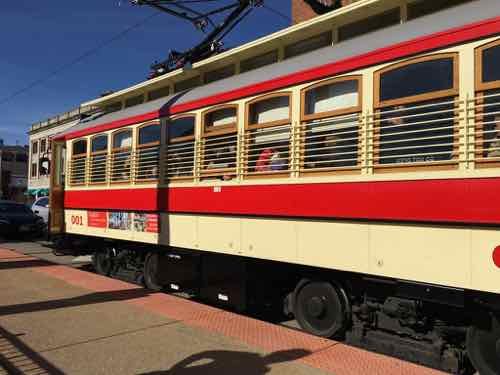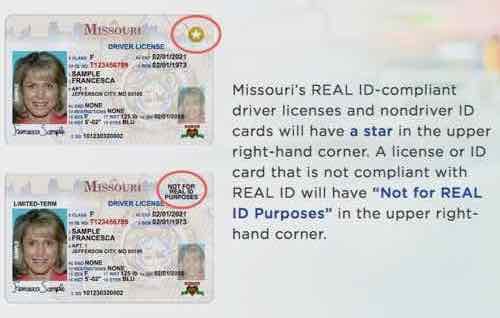Readers Opposed To Loop Trolley Bailout
I’m a huge fan of modern streetcars, like the line in Kansas City, but I’m indifferent to “heritage” trollies that use vintage or reproduction of early 20th century equipment. They’re great for nostalgia buffs, Instagram-worth photos, etc. Actual transportation? Sorta, mostly for tourists.

Many comments I read online said the Loop Trolley was a bad idea from the start. Yes and no. Most of the established businesses in the Delmar Loop are further than a quarter-mile walk from the Delmar MetroLink (light rail) station — that’s the maximum distance most people are wiling to walk. The #97 MetroBus runs on the Delmar portion of the Loop Trolley, but it only runs every 30 minutes. Plus, many in our region view the bus as poor people transit. And the bus doesn’t encourage millions in new dense infill construction the way expensive fixed-rail projects do.

So providing a rail system to get people the last mile to/from a transit station was actually a good idea. The problem was Joe Edwards, the Loop’s longtime advocate, insisted the vehicles be vintage trolley cars — not better modern streetcars. Modern low-floor streetcars are easy to board & exit — including for those of us using wheelchairs. Families pushing strollers also find modern low-floor streetcars to be very convenient. Vintage high-floor trolley vehicles, are the opposite.

At one point a consultant on the project told me he was pushing to future-proof the design so modern streetcars, known as trams elsewhere in the world, could eventually replace the vintage cars. Unfortunately, he didn’t prevail. Had the system been built for modern low-floor vehicles it would be straightforward to make the system actually serve local transit needs, with a future expansion east on Delmar. But no, we’ve got a system that’ll only work with vintage cars that Seattle no longer wanted. Seattle does have a nice modern low-floor streetcar system.
Some project info from the Loop Trolley website:
Who owns and operates the trolley system?
The Loop Trolley is owned by the Loop Trolley Transportation Development District (LTTDD) and will be operated by the Loop Trolley Company, a 501c3 nonprofit organization.How much did this project cost to build?
The construction budget for the Loop Trolley project is $51 million, or $17 million per track mile. This is on the low side in comparison to other recently constructed streetcar systems such as Cincinnati ($36.76M/track mile), Tucson ($28.26M/track mile), Kansas City ($25.35M//track mile) and Portland ($22.43M/track mile).How is construction and operations funded:
The primary construction funding came via a $25 million FTA Urban Circulator grant. Funding also comes from other federal grants (CMAQ, STP), a TIF, New Market Tax Credits, St. Louis County Transportation Fund, Great Rivers Greenway, Washington University, and Loop Trolley Transportation Development District sales taxes and donations. A combination of fares, advertising and LTTDD sales taxes will fund operations.Who supported the effort to restore trolley service in St. Louis?
In addition to the Federal Transit Administration and the Loop Trolley Company, other supporters include St. Louis County, Great Rivers Greenway, Washington University, the City of St. Louis, University City, the Missouri History Museum, East-West Gateway Council of Governments, Citizens for Modern Transit, our congressional delegation, The Loop Special Business District, and many businesses, neighborhood groups and residents.
Now the very non-profit says they need $700k to prevent becoming insolvent. The city already said no, now the St. Louis County Council doesn’t plan to take up the request. There was a time Joe Edwards could do no wrong, so he got his way on this. Too bad politicians, business executives, etc didn’t learn to say no to Edwards — at least have modern low-floor streetcars from the start or be able to add them later.
Here are the results from the recent non-scientific Sunday Poll:
Q: Agree or disagree: St. Louis City & County should equally help the Loop Trolley Co. so it doesn’t become insolvent.
- Strongly agree: 7 [11.86%]
- Agree: 4 [6.78%]
- Somewhat agree: 5 [8.47%]
- Neither agree or disagree: 1 [1.69%]
- Somewhat disagree: 3 [5.08%]
- Disagree: 11 [18.64%]
- Strongly disagree: 28 [47.46%]
The Post-Dispatch Editorial Board agrees with the majority.
It was bad business from the beginning for the trolley’s promoters to have failed to foresee the low rider interest and economic challenges that led to the current crisis, and it’s bad business for the region’s leaders to keep throwing money at it. If this project is still as viable as its promoters claim it to be, let private sources cover these shortfalls. The taxpayers have done enough.
I’m torn. I was hoping the trolley would spur new development in the city portion of the route, but this land may sit vacant for years to come. Abandoning a project after tens of millions have been invested will have repercussions for decades to come. But I know money shouldn’t go to the non-profit that got us to this point.
Perhaps Metro (aka Bi-State Development) can take it all off their hands? Then your local monthly pass, 2-hour transfer, or Gateway Card will work for fare payment. Other than Metro, I don’t see a solution — not necessarily a good solution, but an effort to try something different to save face as a region.
— Steve Patterson


 The
The 